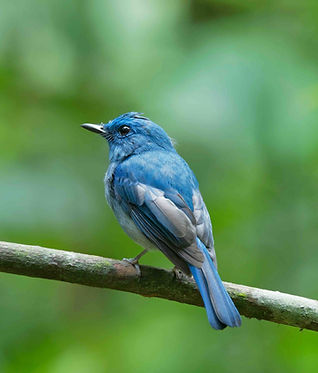top of page
CITIZEN SCIENCE PROJECTS
In addition to our custom citizen science projects, we’re committed to growing a global community of citizen scientists. Our directory showcases a diverse range of programs from around the world, giving individuals everywhere the opportunity to get involved, contribute valuable data, and drive meaningful change.
BLUE WATER TASK FORCE
Location:
Project by:
Dates:
U.S.
Surfrider Foundation
Ongoing
The Blue Water Task Force monitors water quality at beaches to protect public health. Labs measure fecal indicator bacteria levels in recreational waters, comparing results to local standards. They fill gaps in agency-run programs by sampling ocean and bay beaches, plus potential pollution sources like stormwater outlets, rivers, and creeks. Operating year-round, they continue when lifeguards and health officials typically stop.

CROWDMAG
Location:
Project by:
Dates:
Global
NOAA
Ongoing
NOAA's CrowdMag is a crowdsourced project using a mobile app to collect geomagnetic data from smartphones' magnetometers. NCEI collects and quality-controls this data from citizen scientists globally, then provides it through aggregated maps and charts. These data offer a high-resolution alternative to geomagnetic satellite data, providing near real-time information on magnetic field changes.

DEBRIS TRACKER
Location:
Project by:
Dates:
Europe
National Geographic Society
Ongoing
Debris Tracker is designed to help citizen scientists like you make a difference by contributing data on plastic pollution in your community. Every day, dedicated educational, non-profit, and scientific organizations and passionate citizen scientists from all around the world record data on inland and marine debris with our easy-to-use app, contributing to our open data platform and scientific research.

FROGWATCH USA
Location:
Project by:
Dates:
U.S.
Akron Zoo
Ongoing
FrogWatch USA encourages volunteers to collect and contribute information about the breeding calls of frogs and toads to a national dataset that is publicly available online. The information collected by thousands of FrogWatch USA volunteers across the United States is then analyzed to inform the development of environmental protection and amphibian conservation strategies.

CELEBRATE URBAN BIRDS
Location:
Project by:
Dates:
U.S.
Cornell Lab of Ornithology
Ongoing
Celebrate Urban Birds strives to co-create bilingual inclusive, equity-based community science projects that serve communities that have been historically underrepresented or excluded from birding, conservation, and citizen science. The project seeks to promote better science through the equitable exchange of knowledge, increased access, centering missing voices and experiences, and by intentionally advocating for community ownership and leadership of scientific research.

PROJECT FEEDERWATCH
Location:
Project by:
Dates:
North America
Cornell Lab of Ornithology
November - April
Project FeederWatch transforms bird feeding into scientific discovery. This November-April survey in North America observes birds in various locations, including backyards and nature centers. No feeder is necessary; just attract birds with plants, water, or food. The schedule is flexible: count birds on your chosen days and enter the data online. Your counts help track local bird populations and contribute to a continental bird distribution dataset.

THE CHESAPEAKE MONITORING COOPERATIVE
Location:
Project by:
Dates:
U.S.
Chesapeake Bay Program
Ongoing
The Chesapeake Monitoring Cooperative unites Community Science efforts across the Chesapeake Bay watershed to improve understanding of its health. They offer technical and outreach support, integrating volunteer-based water quality and macroinvertebrate monitoring data into the Chesapeake Data Explorer. This data hub is publicly accessible and used by the Chesapeake Bay Program to assess the ecosystem's health.

SKYWARN STORM SPOTTER PROGRAM
Location:
Project by:
Dates:
U.S.
National Weather Service (NWS)
Ongoing
In most years, thunderstorms, tornadoes and lightning cause hundreds of injuries and deaths and billions in property and crop damages. To obtain critical weather information, the National Weather Service (NWS) established SKYWARN® with partner organizations. SKYWARN® is a volunteer program with between 350,000 and 400,000 trained severe weather spotters. These volunteers help keep their local communities safe by providing timely and accurate reports of severe weather to the National Weather Service.

LANDSLIDE REPORTER
Location:
Project by:
Dates:
U.S.
NASA
Ongoing
Landslides, caused by natural forces or human activities, can be catastrophic, leading to loss of life and infrastructure damage. Scientists at the Hydrological Sciences Lab are developing tools to predict and map landslide-prone areas. They aim to create open-source tools to help communities worldwide prepare for and respond to these disasters more effectively.

WHALE ALERT WEST COAST
Location:
Project by:
Dates:
U.S.
Point Blue Conservation Science
Ongoing
Whale Alert is a collaborative effort to save endangered whales. Whale Alert – West Coast prevents whales from deadly collisions with vessels by informing NOAA National Marine Sanctuaries of the presence of whales near the shipping lanes off the West Coast, particularly off San Francisco and near the Channel Islands. Whale Alert – West Coast also helps prevent whale entanglements in Dungeness crab fishing gear by informing the California Department of Fish and Wildlife of the presence of whales in three critical fishing regions along the coast.

EBIRD
Location:
Project by:
Dates:
Global
Cornell Lab of Ornithology
Ongoing
eBird is among the world’s largest biodiversity-related science projects, with more than 100 million bird sightings contributed annually by eBirders around the world and an average participation growth rate of approximately 20% year over year. A collaborative enterprise with hundreds of partner organizations, thousands of regional experts, and hundreds of thousands of users, eBird is managed by the Cornell Lab of Ornithology.

NEIGHBORHOOD NEST WATCH
Location:
Project by:
Dates:
U.S.
Smithsonian
Ongoing
This Smithsonian citizen science program provides an outdoor educational experience for backyard wildlife enthusiasts and underserved youth. Participants contribute to important scientific research by re-sighting banded birds and monitoring nests. The Neighborhood Nestwatch approach features face-to-face interaction on an annual basis between Smithsonian scientists, participants and neighborhood birds. The program takes place in metro-area backyards, as well as at under-resourced schools in cities throughout the U.S.

JOIN THE COMMUNITY
Join our community of citizen scientists and receive regular updates on community happenings, new projects, exciting events, and more – delivered directly to your inbox.
bottom of page
